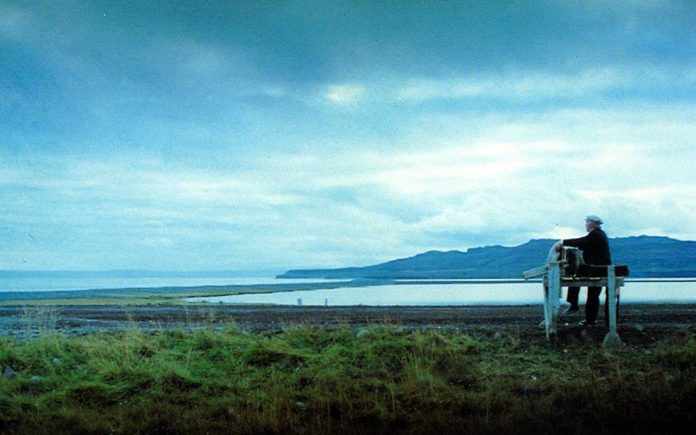By: Pamela Subia, SFU Student
The filth of human behaviour and the anguish of nostalgia as we age are two of the concepts featured in the films of the Icelandic film showcase special at The Cinematheque. Wayward Heroes: a Survey of Modern Icelandic Cinema is an homage to the most notorious films that emerged from modern Icelandic cinema after the late 80s, invoking emotions that enable anybody to find themselves in the spirit of this remote land.
The opening night of this Icelandic exploration took place last Thursday at The Cinematheque, one of Vancouver’s few local and independent film theatres, located in the heart of downtown. Anybody in the audience unfamiliar with Icelandic cinema was lucky to enter this world with the guidance of Steve Gravestock.
Gravestock is a senior film programmer who takes part in the Nordic and Canadian film selections for the Toronto International Film Festival. He is an expert in Icelandic cinema, recently writing the book A History of Icelandic Film which is set to publish in August of this year. In the book, Gravestock outlines the evolution of Icelandic film from the 1920s to the present point, building a thread that links the different facets of Icelandic cinema from its earliest stages to its most modern and experimental variations. His introduction to the showcase was inspired by the research done for the book as he gave us an overview of the festival.
The first film showed, Children of Nature, is an emotive and visually thrilling piece of cinema. It starts by portraying the desperation of the often secluded and forgotten elders in senior homes. I say “starts” because as the film progresses, it becomes evident that the yearnings of the main characters, a rebellious geriatric couple, are what many have felt regardless of age: a desire to live a moment over again and an over-awareness of the fleetingness of life. Directed by Fridrik Thór Fridriksson, the film was released in 1991, and saw great international success — which will come as no surprise to viewers of all (adult) ages.
The second film of the evening was Jar City, a 2006 crime piece directed by Baltasar Kormákur that perfectly combines the elements of drama and thriller to share an introspective message about the way humans judge vengeance, murder, and violence. Located in a more modern setting than the previous film, Jar City narrates the story of a chain of interrelated crimes which end up revealing the long forgotten mysteries of a small Icelandic village. What I found the most intriguing was how, in spite of having worn a mask of insensitivity and hardness throughout the whole film, the main character ends up breaking down and collapsing from witnessing the darkest shades of human conduct for too long.
As a new and inexperienced spectator of Icelandic cinema with the two films above as my main reference, I can say that the intriguing cinematography, breath-taking landscapes, orchestrated chains of details, and originality of the plots all make this Nordic branch worthy to be watched and studied. In the end, I return to the idea with which I started: the universal emotion of these films. Children of Nature and Jar City both display deep human emotions that invite us to reflect upon ourselves and the way we make judgements about the things, and people, around us.
Wayward Heroes: A Survey of Modern Icelandic Cinema is at the Cinematheque until June 28, with different showings each day. You can find the full program guide and buy tickets at thecinematheque.com or in their May/June printed program (which can be found at SFU Woodwards among other places in Vancouver).




